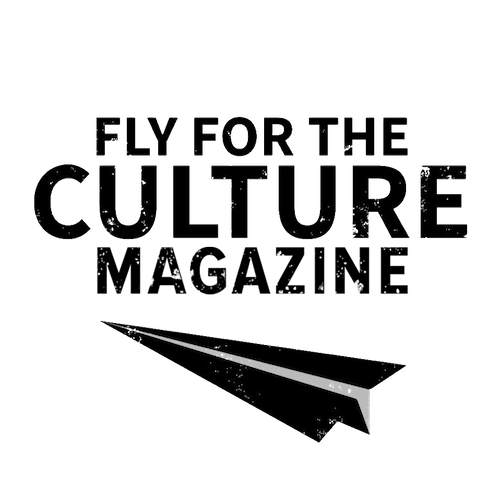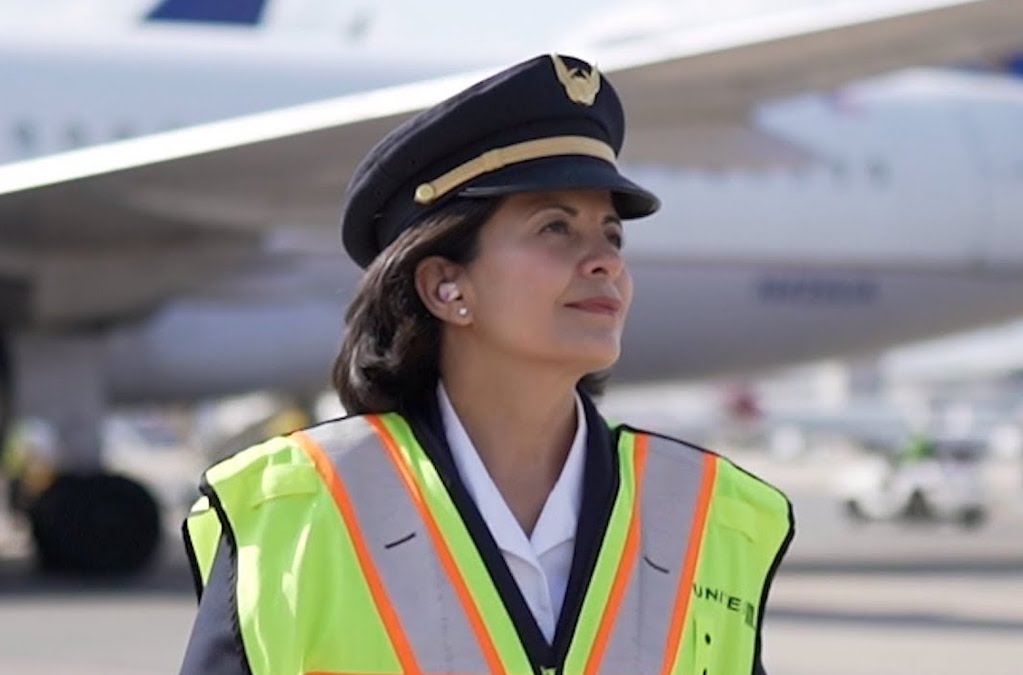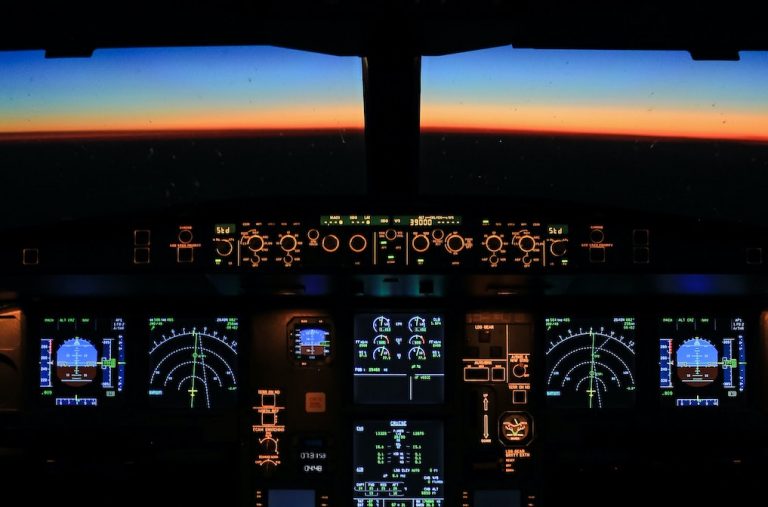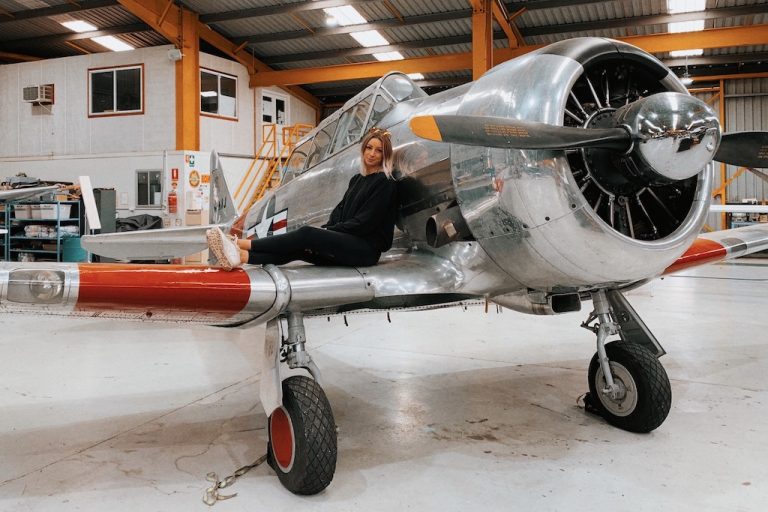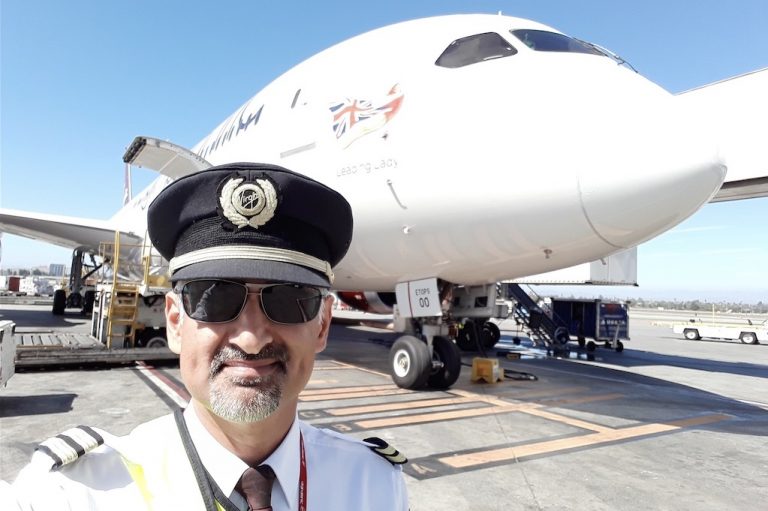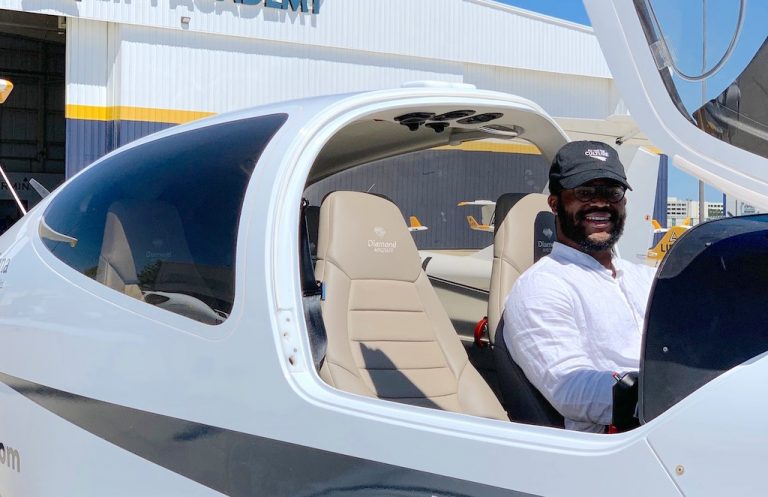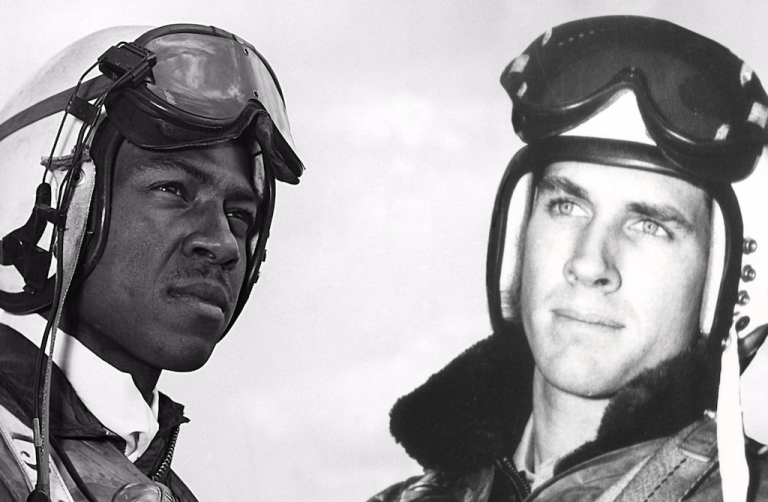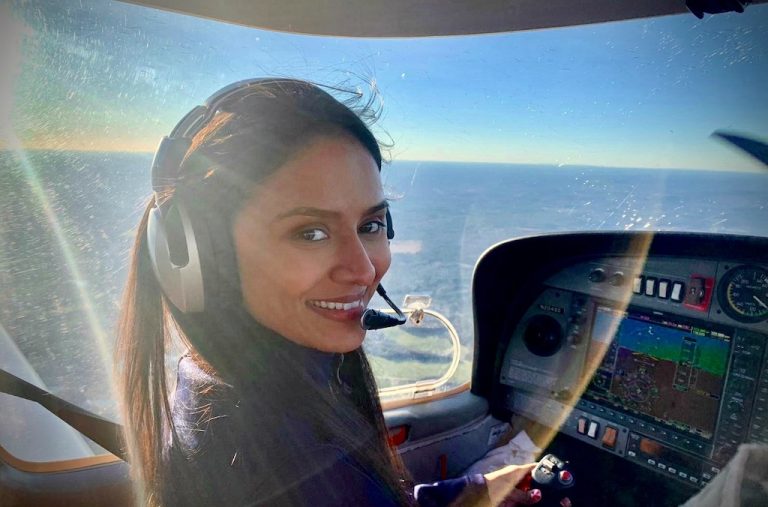Claudia Zapata-Cardone
As a child of immigrants, Claudia Zapata-Cardone’s journey to becoming an Airbus 319/320 Captain is a remarkable story of grit, passion, and her parents’ steadfast belief in the American Dream. She is living proof that becoming a commercial pilot can be achieved, regardless of one’s socio-economic background, race, and gender.
Captain Zapata-Cardone credits her father, Jesus Zapata, for inspiring her to join the aviation industry. He immigrated to Queens, New York from Zarzal, Colombia, in the early 1960s, later serving in South Korea during the Vietnam War. When he returned, he was granted US citizenship and found a job in New York City at the Singer Corporation’s logistics division.
In 1971, Zapata-Cardone’s mother, Gladys Zapata, emigrated from Colombia to Queens as a recently divorced, single mother of two in search of a better life. She worked various factory jobs, eventually becoming a tool and dye maker. As fate would have it, Gladys and Jesus would meet at a New Year’s Eve party, and Claudia Zapata-Cardone was born in Elizabeth, New Jersey in 1974.
Jesus Zapata was able to use his VA benefits to purchase the family’s first home in New Jersey; however, he was permanently laid off from his job with Singer when the US entered a recession in the early 1980s. As a result, her mother worked overtime every day, including Saturdays, and her father got a job as a hotel shuttle driver, to make ends meet.
Then, during a chance encounter, the trajectory of Claudia and her family’s life changed forever. Her father met an employee of Certified Freight Services (a cargo logistics company), who encouraged him to apply, upon learning of his background in logistics. The company then merged with People Express Airlines, and Jesus was hired full time. Claudia says that it was during this time when she was introduced to the aviation industry, watching airplanes take off and land while dropping off hot dinners for her Dad.
‘What a magical thing to be able to fly’, she remembers thinking.
Above all, Claudia’s parent’s had a strong belief that having a good education was necessary in order to get ahead in life. For that reason, during his time as a shuttle driver, her Dad set aside his tips for the exorbitant purchase of an encyclopedia set, in an effort to make education as accessible as possible for his daughter. Claudia fondly recalled the way that her Dad had taught her how to identify a 737 from a 747, captivating her with tidbits of information like their fuel capacity and faraway destinations, which she would go home to research in her encyclopedia.
Her love for aviation continued to grow when People Express Airline merged with Continental, resulting in her family receiving employee travel benefits. When they traveled, which Claudia noted was not very often, she would look at the flight attendants in awe. Having never seen a female pilot aside from reading of their existence in her encyclopedia, it had never occurred to her that she could become one, much less a Latina pilot.
When she made mention of wanting to become a pilot or flight attendant, her high school counselors had laughed at her. As a 5’0 tall woman who wore glasses, she did not make the height or health requirements that were required for pilots or flight attendants at the time. Claudia attended college with the intention of pursuing a career in physical therapy, but lacked passion for it, and still dreamed of working in the aviation industry. She decided to take a semester off, and found a job in crew scheduling.
It was there that she met a couple of pilots who had a partnership in a Cessna 172. They took Claudia up for an intro flight, and suddenly, the world and her place in it made sense.
There were still, however, some seemingly insurmountable obstacles in her way.
In addition to the prohibitive cost of flight training, Claudia still lacked a female mentor who could guide her through the process of becoming a pilot. She compromised, figuring that perhaps someday she could obtain a private pilot license to fly recreationally, and instead applied to be a flight attendant with Delta Airlines, upon realizing that they did not have a height requirement.
Shortly thereafter, in January of 1997, she was hired as a flight attendant and began saving money to put toward her private pilot license. While working a flight the following year, Claudia’s path finally collided with that of a female first officer. The first officer encouraged Claudia to pursue her dream and told her that she had gone through the military. Then, in 1999, she met another female pilot, one who had also come from the military.
It wasn’t until the year 2000 when Claudia met three female pilots who had all earned their certifications through civilian aviation, as opposed to through the military. The pilots sat down with Claudia on different layovers and used their recent training experiences to help her make a plan. In 2001, after saving almost $50,000, and taking a sizeable loan from both her parents and the bank, she was finally able to begin her flight training.
Sadly, just a few months after starting her training, the tragic events of 9/11 took place and Claudia’s flight school went out of business, leaving her with only a private pilot’s license and an instrument rating.
Devastated, Claudia called her parents and they offered to help her finish her training by deferring the money that she owed them. In a display of true perseverance, Claudia continued working long hours as a flight attendant, saving as much money as she could, which allowed her to earn a new certificate or rating once a year until completing them all and becoming a Multi-Engine Instructor.
Meanwhile, Claudia was simultaneously volunteering with the Organization of Black Aerospace Professionals Ace camps and Dream flights as a chaperone, and then as a flight instructor to students in Ace camps. Later on, in addition to volunteering with OBAP, she also started volunteering with the Tuskegee Airman Aviation Career Training summer camp, which focuses on aviation careers.
In 2006, Claudia had completed all of her certifications and ratings and began working as a flight instructor in Peachtree City, Georgia. She left her job as a flight attendant with Delta in 2008 and began instructing full time.
In 2010, she earned her ATP a few months prior to being hired by Atlantic Southwest Airlines as a first officer in the CRJ-200. However, Claudia’s unfinished college degree was something that was still weighing heavily on her mind, so she went back to school and completed a Bachelors in Aviation Science, knowing that it would also help her chances of being hired by a legacy carrier.
At last, in 2015, Claudia achieved her dream after being hired by United Airlines.
Currently, Claudia’s passion for the piloting profession has led her to serve on the Board of Directors for the Horizons Atlanta International School Summer STEAM program (which focuses on lessening the summer slide phenomenon; the regression of academic proficiency due to the long summer break), and as the Executive Director for Community Outreach and Relations for the Latino Pilots Association. By participating in these positions, Claudia says she is able to help fill the gaping void that existed when she was younger and expose the LatinX community to the possibility of a career in aviation at the grade, middle, and high school levels. She is actively working on a project within the Latino Pilots Association to create a mentorship program aimed at helping Latinas pursue a piloting career, stating that she sees herself in these young women and remembers the numerous obstacles and barriers that she had to overcome along the way to get to where she is now.
Reflecting on what her current goals are, Zapata-Cardone says that she would like to become a Line Check Airman on the Airbus. Beyond herself, she would also like to work with teachers to create an age-appropriate aviation curriculum that will culminate in a field trip to the airport and feels that children, specifically those of colour, need to see more representation.
When it comes to dismantling the biases and stereotypes within the workplace, the industry still has a long way to go.
From speculation that she and other pilots of colour were “diversity hires,” to accusations of being “too emotional,” Captain Zapata-Cardone is no stranger to racial and gender-based discrimination.
“My experience and quality of my flying was continually dismissed, even though I had to work twice as hard as a Latina to get to where I am. When pilots accuse others of being ‘diversity hires,’ they’re insinuating that they didn’t have enough experience prior to getting hired, which is not true.”
That being said, Claudia emphasizes that she is extremely lucky and proud to work for United Airlines, a company that is trying to increase gender, racial, and ethnic diversity through their Aviate program. The program is designed to give aspiring pilots a more direct route to a job offer with United Airlines, through partnerships with flight programs at Universities, flight schools, and through the acquisition of their own flight school.
When asked what piece of advice she would give to up-and-coming aviators, Claudia says that she would pass along what one of her mentors, Jesse Blackshear, had told her at a time when she was feeling frustrated with the slow pace of her training.
“She asked me, ‘How do you eat an elephant? One bite at a time.’ Everything seemed so overwhelming at that point. I felt that I would never achieve my dreams and almost gave up several times. Each time I thought of abandoning my flying dream, I felt a tremendous sense of loss. The universe has a way of opening up paths to keep you going.”
As for what she would do differently if she could do it all over again?
“I wish I could go back in time and tell my younger self that, no matter what happens, you’re going to be ok. It’s all going to work out the way it’s supposed to. Enjoy the journey, savor every success and most importantly, don’t forget it’s a magical thing to be able to fly”.
